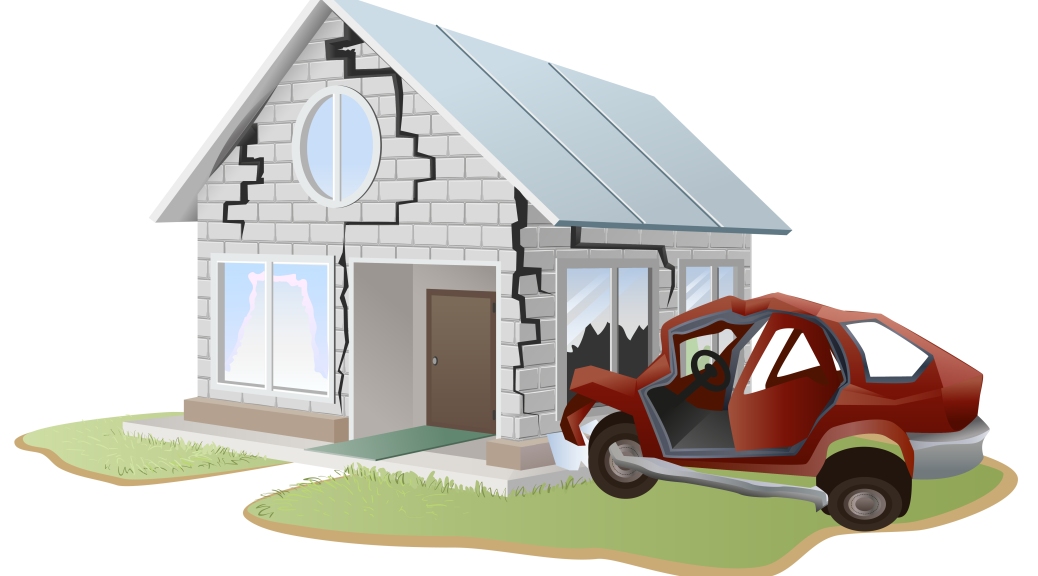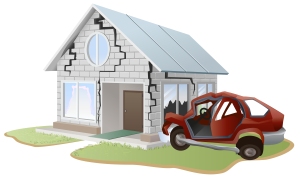Photo credit: Alexander Raths / shutterstock.com
Your rights, including to sue the seller, over a home defect that the seller failed to tell you about.
You’ve closed escrow and moved into your dream home. Your happiness is short-lived, however, as you discover a defect that the seller seems not to have told you about beforehand.
Perhaps, following the first rain, the new fresh coat of paint decorating the walls turns out to have concealed mold and water infiltration from a leaking roof. The bills are stacking up as you seek to replace the roof and remediate the mold. Are these bills your responsibility? Or can you file a lawsuit and force the seller to pay?
Under California Law, Sellers Must Make Written Disclosures to Prospective Buyers
California law requires sellers to disclose to potential buyers, in writing, any details about the property that may affect the potential buyer’s desire to purchase the property, or the amount the potential buyer is willing to pay. These important facts concerning the property’s condition are frequently called “material” facts, and a seller can face severe penalties if he or she fails to disclose one.
What Is a Material Fact?
Material facts frequently involve information concerning the property’s walls, ceiling, floors, insulation, roof, windows, doors, foundation, driveways, sidewalks, fences, electrical systems, plumbing systems, or other structural components. This is not a complete list, as any fact concerning any part of the property can be a material fact if it affects the property’s value, desirability, or ability to be used as intended.
In California, material facts are most often disclosed by completing a form called a “Transfer Disclosure Statement,” which your real estate agent may also refer to as a “TDS.” The point of the Transfer Disclosure Statement is to accurately describe the condition of the property. You should check your TDS to see if the seller, in fact, failed to disclose the defect now troubling you.
So, in our example, above, the relevant section would be part “B” which asks, “Are you (Seller) aware of any significant defects/malfunctions in any of the following?” If the seller failed to check the box next to “Roof,” the seller has failed to disclose that defect.
How Do You Prove That the Seller Concealed a Defect?
If the seller concealed a known defect, you can sue the seller for fraudulent misrepresentation. You will have to prove that the seller actually concealed the defect, as opposed to having perhaps been unaware of it.
You might be able to prove the seller’s intent to conceal from the seller’s conduct, such as having painted over the evidence of the roof leak. You might also prove the seller’s intent to conceal a defect based on any instructions given to an agent not to tell you, or other prospective purchasers, about the concealed defect. Speak to your neighbors, your agent, and perhaps even the seller’s agent, to gather all relevant facts.
If you end up filing a lawsuit, your lawyer will take depositions (interviews of relevant parties) and gather evidence to establish whether or not the seller was aware of the defect and concealed it from you.
The Seller Will Be Responsible for Damages Resulting From a Concealed Defect
If you can prove that the seller was aware of the defect and concealed it, instead of disclosing it, odds are you have a case for fraudulent misrepresentation. You may also have a case against the seller’s real estate agent, your agent, as well as any inspectors who knew, or should have known, about the defect but didn’t tell you.
If you go to court, you may be awarded one or more of the following:
1. Compensatory Damages: The seller could be forced to pay compensatory damages, to compensate you for any out-of-pocket costs associated with the concealed defect. These could include the cost of repair and any diminution in property value resulting from the defect.
2. Punitive Damages: If you can prove that the seller acted with malice in concealing the defect, you may be able to recover punitive damages. Punitive damages can be awarded by the court in addition to compensatory damages, as they are intended to punish the wrongful conduct and deter the seller and others from committing future fraudulent acts.
3. Rescission: In rare, serious cases, the purchase agreement can be rescinded, or cancelled, such that you would get your money back and the seller would get the house back.
Is Going to Court Your Only Option?
Going to court is not your only option. It can be faster and less expensive to try to resolve your issue informally. A good first step is to make a few phone calls, to the:
- Home warranty company: Find out if the item at issue is under warranty. If so, you may be entitled to repairs under the terms of your warranty.
- Insurance company: Call your insurance agent to find out if insurance will cover repairs of the defect. (If it’s a pre-existing condition, they may not.)
- HOA: If your home is within a community governed by a homeowner’s association, call the management to see if the affected area is considered part of the common areas. If so, the HOA may contribute to or pay the cost of repairs.
- Seller: Write a brief demand letter to the seller describing the issue and demanding payment for all expenses related to repairing or replacing the defect. You may want to send a similar letter to the seller’s real estate agent if you have reason to believe that the agent was aware of the defect and participated in concealing it.
Post courtesy of nolo.com


